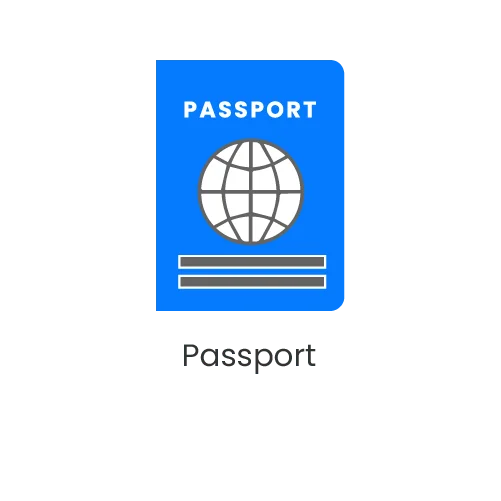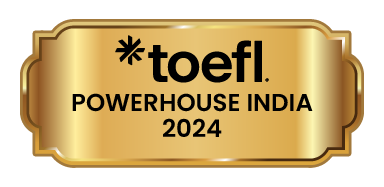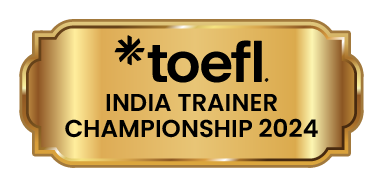Study In Finland
Table of content
Important Facts About Finland
- Finland is among the five Nordic countries, along with Denmark, Iceland, Norway and Sweden. The Nordic countries share a common history, culture and values. They are known for their high living standards, social welfare and environmental protection.
- Finland has been declared the happiest country in the world for the fifth year in a row, according to the World Happiness Report 2024. Finland also ranks high in other global indexes, such as education, innovation, gender equality and press freedom.
- Finland is also known as the “Land of a Thousand Lakes” but has around 188,000 lakes, more than any other country. The lakes cover about 10% of the country’s surface area and are connected by rivers and canals.

- October 13th every year in Finland is celebrated as “The Failure Day”. The idea behind this event is to encourage people to embrace their failures and learn from them rather than fear them.
- Finland has a world-class higher education system, offering over 550 English-taught courses in Bachelor’s and Master’s degrees. Finnish universities are internationally recognized for their excellence in research and innovation and provide a wide range of disciplines, from engineering and natural sciences to arts and humanities. Finnish universities also collaborate with industry and society to solve real-world problems and create impact.
- All universities have scholarship opportunities for international students. Depending on the university and the program, scholarships may cover tuition fees, living expenses or both. Scholarships are usually awarded based on academic merit, motivation and potential.
- Finland has over 20,000 international students from more than 100 countries. In Finland, international students can enjoy a high quality of life, a safe and tolerant society, and a vibrant student culture.
Why Study in Finland?
1. High-quality Education
Finland is widely recognized for having one of the best education systems in the world, per various international rankings and assessments. Its universities and universities of applied sciences offer a wide range of programs in multiple fields of study, ranging from engineering and natural sciences to arts and humanities. The education system in Finland places a high emphasis on creativity, critical thinking, problem-solving skills, and practical application of knowledge. Students studying in Finland’s universities also benefit from collaborating with leading research institutes and industries, providing them with access to cutting-edge facilities and opportunities for innovation. Most universities in Finland have joint programs.
If you are eligible for a Bachelor’s degree, you are automatically pre-approved for a Master’s degree.
2. Affordable Tuition Fees
Finland is one of Europe’s most cost-effective study destinations for international students. While tuition fees vary depending on the program and institution, most bachelor’s and master’s programs are free for students from the European Union (EU) and the European Economic Area (EEA).
For students outside the EU/EEA, tuition fees range from 4,000 to 18,000 euros per year, depending on the program and institution. However, many universities offer scholarships and grants to cover part or all of the tuition fees for eligible students. In addition, the cost of living in Finland is relatively low compared to other European countries, especially in smaller towns and rural areas.
3. Diverse Cultural and Linguistic Opportunities
Finland is a culturally and linguistically diverse country with a rich history and heritage. Finland has two official languages, Finnish and Swedish, and several minority languages, such as Sami, Romani, and Finnish Sign Language. English is widely spoken in Finland, especially among young people and in academic and professional settings.
Many universities offer programs in English for international students, as well as courses in Finnish and Swedish for those who want to learn the local languages. Studying in Finland also allows international students to experience the Finnish culture, known for its values of equality, democracy, and social justice. Finland also celebrates festivals and events throughout the year, such as Midsummer, Christmas, Vappu (May Day), and Independence Day.
4. Stunning Natural Beauty
Finland is a country of breathtaking natural beauty, with diverse landscapes and scenery. Finland has over 180,000 lakes and 179,000 islands, making it a paradise for water lovers. Finland also has vast forests covering more than 70% of the land area, offering hiking, biking, camping, and wildlife-watching opportunities.
Finland is also home to Lapland, the northernmost region of the country, where students can witness the spectacular phenomena of the midnight sun in summer and the northern lights in winter. Lapland is also famous for its snow-covered mountains, ski resorts, reindeer farms, and Santa Claus Village.
5. Excellent Career Prospects
Studying in Finland can open up many doors for students’ future careers. Finland boasts a well-developed economy with IT, biotech, clean energy, design, and education strengths. Finland is also a leader in innovation and entrepreneurship, ranking among the top countries in the Global Innovation Index and the Global Entrepreneurship Index.
Students who graduate from Finnish universities can access various employment opportunities within and outside Finland. Moreover, after graduation, students who complete a degree or at least two years of studies in Finland can apply for a residence permit for job-seeking or entrepreneurship purposes.
Education System in Finland
Higher education institutions in Finland are classified into two categories: Universities and Universities of Applied Sciences, both of which provide higher education degrees. The European Credit Transfer and Accumulation System (ECTS) measures students’ academic workload. A full-time academic year corresponds to 60 higher education credits in this framework.
Bachelor’s Degrees in Universities of Applied Sciences (UAS)
A Bachelor’s degree from a Finnish UAS comprises 210, 240, or 270 credits, translating to 3.5 – 4.5 years of full-time study. The content of degree programs is determined by each UAS, meaning programs with identical names could have different study modules across various UAS institutions. In Finland, UAS institutions offer Bachelor’s degrees across diverse fields of study
Bachelor’s Degrees in Universities
A Bachelor’s degree from a Finnish university comprises 180 credits and typically requires about three years of full-time study. Students accepted into Finnish universities can pursue Bachelor’s and Master’s degrees. In Finland, the language of instruction for most bachelor's degree programs is English. Undergraduate degree courses here also allow students to pursue a term at partner universities.
Master’s Degrees in Universities of Applied Sciences
Finland is home to over 22 Universities of Applied Sciences. The university is also referred as 'Polytechnics' or 'AMK ( Ammattikorkeakoulu)'. In Universities of Applied Sciences (UAS), various Master’s degrees are available, primarily designed for individuals who are already professionally active. In the job market, a UAS Master’s degree holds the same value as a traditional university Master’s degree.
Master’s Degrees in Universities
A Master’s program in a university typically comprises a minimum of 120 credits and usually takes around 2 years of full-time study to complete. Finland offers an exceptional learning experience for Master's students due to their small class-size approach, where engagement between students and teachers is more meaningful. Industry collaboration and collaborative learning are also practiced.
Doctoral Degrees
Postgraduate studies at the university level are designed to lead to a doctoral degree. This degree typically requires 240 credits and takes about four years to complete. Doctoral programs include research, specific studies related to the discipline, and public defense of a doctoral thesis. In Finland, students can choose between structured doctoral programs or personalized paths.
Licentiate Degrees
Before pursuing a doctorate, students can attain a pre-doctoral qualification known as a licentiate. This intermediate step involves a study duration of about two years and includes 60 credits. The licentiate serves as a foundation, preparing students for the more rigorous demands of the Doctoral program. Upon completion, students are eligible to conduct independent research and supervise a Master/Licentiate thesis.
Grading System in Finland
In Finland, the grading scale used for higher education might vary. However, most of the universities in Finland use a grading scale from 0 to 5. They are often converted into ECTS grading scale for international compatibility, especially for international students.
| Finnish Grade (0-5) | Description | ECTS Grade Scale |
| 5 | Excellent | A |
| 4 | Very Good | B |
| 3 | Good | C |
| 2 | Satisfactory | D |
| 1 | Sufficient | E |
| 0 | Fail | F |
Types of Educational Institutes in Finland
Two types of institutes offer higher education in Finland, and they are:
1. Universities of Applied Sciences (UAS)
Universities of Applied Science (UAS) aim to educate individuals with a focus on the specific needs of the job market. They also undertake research and development that enhances their curriculum and significantly benefits regional growth. The collaboration between UAS and local businesses, industries, and services is especially highlighted in their approach. UAS in Finland has over 100 Bachelor’s Degree programs and over 20 Master’s degree programs.
Universities of Applied Sciences (UAS) offer:
- Professional specialization
- Other adult education
- Open UAS education
- Professional teacher education
- Bachelor’s degrees
- Master’s degrees
2. Universities
The main goal of Finish universities is to provide scientific and artistic undergraduate and postgraduate education based on research. They offer over 100 Master’s degree programs and 10 Bachelor’s degree programs taught in English.
Different levels of study opportunities by Universities in Finland:
- Bachelor’s degrees
- Master’s degrees
- Postgraduate licentiate and doctoral degrees
- Continuing education
- Open university education
- Universities offer study options in 21 different fields
Top Courses to Study in Finland International Students
Finland’s innovative educational approach and emphasis on research attract many international students. The Finnish education system offers a variety of courses tailored to prepare students for the global job market. These courses are structured around three main elements: core curriculum, electives, and areas of specialization, all aimed at enhancing the holistic learning experience.
Advantages of pursuing a course in Finland include:
- Holding a degree from Finland, which is recognized and valued globally.
- An education model in Finland that is deeply rooted in a research-driven approach, ensuring students are prepared for real-world challenges.
- Finnish institutions utilize the latest technologies and teaching methodologies, ensuring a modern and efficient learning environment.
- Many international students are increasingly attracted to Science, Technology, Engineering, and Mathematics (STEM) courses due to the extensive research opportunities and the promise of high employability post-graduation.
International students are drawn to Finland for its cutting-edge academic programs. Here are some of the most sought-after courses:
1. Computer Science and IT
Finland is at the forefront of information technology and digitalization, making it a prime destination for skilled professionals. Computer science and IT programs in Finland offer comprehensive coverage of courses such as software engineering, artificial intelligence, data science, cybersecurity, and game development.
2. Engineering and Technology
Finland is known for its excellence in engineering and technology. It has a strong tradition of innovation and entrepreneurship in this field. Engineering and technology programs in Finland cover courses such as mechanical engineering, electrical engineering, biotechnology, nanotechnology, and robotics.
3. Mathematics
Finland has a high-quality education system that emphasizes mathematics and science. Mathematics is a fundamental discipline that underpins many fields of study and research. Mathematics programs in Finland cover topics such as algebra, analysis, geometry, topology, logic, statistics, optimization and applied mathematics.
4. Business and Management
Finland has a competitive and dynamic economy that offers many opportunities for business professionals. Business and Management programs in Finland cover marketing, finance, accounting, economics, entrepreneurship, innovation management, international business, and strategic management.
5. Education and Training
Finland has one of the best education systems in the world. It has high student achievement, teacher quality, and educational equality. Education and Training programs in Finland cover topics such as pedagogy, curriculum development, educational psychology, educational leadership, special education, and intercultural education.
Apart from the above, there are also several other courses which you can pursue in Finland, such as:





Top Universities to Study in Finland for Indian Students
Finish Universities feature in the top 20 percentile of the Times Higher Education World University Ranking 2024:
| Finnish Universities | Times Higher Education World Rankings 2024 |
|
|
121 |
|
|
201-250 |
|
|
251-300 |
|
|
251-300 |
|
|
301-350 |
|
|
301-350 |
|
|
401-500 |
|
|
401-500 |
|
|
501-600 |
|
|
501-600 |
The ranking is based on these four factors: teaching, research, knowledge transfer and international outlook.
These Universities Accept the Following Test Scores:
- IELTS
- TOEFL iBT
- PTE Academic
- Cambridge C1 Advanced test (Certificate in Advanced English)
- Cambridge C2 Proficiency test (Certificate of Proficiency in English)
Most universities require no additional documents or language test results if your academic records prove language proficiency.
Popular Cost-Effective Universities in Finland
For international students considering Finland, tuition fees can range from €6,000 to €15,000 per year, depending on the university and the specific program of study. While Finland’s education cost is reasonable compared to many other countries, it’s worth noting that the most cost-effective universities may charge tuition fees in the range of €5,000 to €12,000 per year. These institutions offer a balanced blend of affordability and academic excellence, making them a preferred choice for many international students.
| University Name | Type of Institution |
|
|
University |
|
|
University |
|
|
University of Applied Sciences (UAS) |
|
|
University |
|
|
University |
|
|
University |
|
|
University of Applied Sciences (UAS) |
University of Vaasa
The University of Vaasa is well-known for its strong commitment to responsible business practices. The university excels in various fields, including business, technology, management, and communications. Its dedication to high-level expertise and research in these areas stands out. What makes the University of Vaasa unique is its innovative approach to education. By promoting a multidisciplinary environment and utilizing advanced research platforms, the university keeps pushing itself forward, ensuring that its students and faculty are at the forefront of knowledge and innovation. Through a combination of academic excellence and a strong emphasis on responsibility, the University of Vaasa is a leader in preparing future professionals for success in the global business landscape.
For international and Finnish applicants, the University of Vassa offers eight English-taught Master’s programs, including:
MSc in Economics and Business Administration Programs
- Finance
- International Business
- Strategic Business Development
- Industrial Management
MSc in Technology
Programs
- Industrial Systems Analytics
- Smart Energy
- Sustainable and Autonomous Systems
- Strategic Project Management
If you are planning to pursue your higher education at the University of Vaasa, then here’s your exclusive opportunity to unlock value-added benefits, including guaranteed scholarship.
- Connect with Our Counsellors to Begin Your Application.
Eligibility Criteria and Application Process
Basic Requirements for Studying in Finland
For fields like Business, Engineering & Technology, and Nursing and Social Services, the essential admission prerequisites include:
- AISSC (All India Senior School Certificate) issued by CBSE (Central Board of Secondary Education)
- ISC (Indian School Certificate) given by CISCE (Council for the Indian School Certificate)
- A minimum GPA of 60%
- Mathematics score of 60% or above and Physics score of 60% or higher for engineering courses.
- Evidence of English language skills
- A legible copy of the passport’s identification page
Specific Academic Criteria
Admission standards differ according to the level and nature of the degree program
Bachelor’s Programs
Candidates must have finished an upper secondary education comparable to Finland’s matriculation exam. The Finnish National Agency for Education will review the application accordingly.
Master’s Program
International applicants should hold a bachelor’s degree in a relevant subject area. The assessment of academic qualifications is done by either the university or the Finnish National Agency for Education.
PhD Programs
for doctoral studies, applicants generally need a relevant master’s degree with a strong academic record. The university’s specific department or research group will typically evaluate the applicant’s qualifications, research proposal, and potential for scholarly work.
Some educational programs in Finland may specifically require the following admission requirements:
- Work or employment certificate with a minimum 2 years of experience
- GRE or GMAT test
- Motivational video letter
- Entrance Exam or SAT Test
- One or two Letters of Recommendation (LORs)
Required Documents for Application Process
Some educational programs in Finland may specifically require the following admission requirements:
- Work or employment certificate with a minimum 2 years of experience
- GRE or GMAT test
- Motivational video letter
- Entrance Exam or SAT Test
- One or two Letters of Recommendation (LORs)
University Intakes and Timeline
The universities of Finland majorly follow two intakes – Autumn intake and Spring intake
Autumn Intake
This is the primary intake with most course offerings. It starts in September and lasts until the end of December. The application deadline for this intake is usually between December and March, depending on the university. Most students prefer this intake as it gives them more time to adjust to their studies and the environment.
- March – April of the previous year: Research the universities, courses, and application deadlines and start arranging the required documents.
- May – June: Appear for English proficiency exams and standardized exams like GRE and GMAT or any other exam as per the course requirement. It is always better to appear for these exams a little earlier because you may be required to re-test if the scores are low.
- July – September: Work on your motivation letter or video, resume, transcripts and other documents.
- October – December: Start applying to the colleges with all necessary documents.
- January – March: If your application is accepted, then an offer of placement will be sent.
- April – June: Start applying for the VISA as soon as you receive the acceptance letter. This is also the time to arrange for your finances, like applying for student loans or scholarships.
- August / September: Prepare to start your semester in Finland.
Spring Intake
This is the secondary intake or an extension of the Autumn intake. It starts in January and lasts until the end of May. The application deadline for this intake is usually between May and June, depending on the university. This intake is suitable for students who missed the Autumn intake or want to start their studies sooner.
- October – November of the previous year:Research the universities, courses, application deadlines and start arranging the required documents.
- December – February: Appear for English proficiency exams and standardized exams like GRE and GMAT or any other exam as per the course requirement. It is always better to appear for these exams a little earlier because you may be required to re-test if the scores are low.
- March – May: Work on your motivation letter or video, resume, transcripts and other documents.
- June – July: Start applying to the colleges with all necessary documents.
- August – October: If your application is accepted, then an offer of placement will be sent.
- October – December: Start applying for the VISA as soon as you receive the acceptance letter.
- January / February: Prepare to start your semester in Finland.
Cost of Studying in Finland for international Students
Here, we have included the average annual cost of education in EUR (€). Actual values may differ across cities and universities in Finland.
| Level of Study | Type of University | Annual Tuition Fees (€) | Annual Living Expenses (€) |
| Bachelor’s | University | €4,000 - €18,000 | €8,400 - €10,800 |
| Bachelor’s | University of Applied Sciences | €4,000 - €12,000 | |
| Master’s | University | €4,000 - €18,000 | |
| Master’s | University of Applied Sciences | €4,000 - €12,000 | |
| PhD | University | No tuition fees |
Types of Student VISAs in Finland
A. Residence Permit for Studies
This is the ideal option for students who have been accepted to a degree program in Finland that lasts longer than 90 days. You can pursue your academic goals and enjoy the benefits of living in Finland.
Duration: You can stay in Finland for the entire duration of your studies, as long as you renew your permit before it expires. You can also apply for an extension if you need more time to complete your degree.
Work: You can work part-time during your studies, up to 25 hours per week, and full-time during holidays. This can help you gain valuable experience and earn some extra income.
2. Short-term VISA
This is a suitable option for students who want to attend a short course, training, or workshop in Finland that lasts up to 90 days. You can learn new skills and explore the Finnish culture and nature.
Duration: You can stay in Finland for up to 90 days within a 180-day period. You cannot extend your visa or change it to another type of permit while in Finland.
Work: You are not allowed to work in Finland with this visa. You can only participate in the educational activities that are related to your visa purpose.
Application Requirements: To apply for this visa, you need to provide an invitation letter from the Finnish host organization, proof of accommodation in Finland, proof of sufficient funds to cover your travel and stay, proof of travel and medical insurance, and other documents depending on your situation.
3. Researcher’s Residence Permit
This is a special type of permit for postgraduate students or professionals who come to Finland to conduct scientific research as part of a research project. You can work as a researcher and contribute to the advancement of knowledge and innovation in Finland.
Duration: You can stay in Finland for the duration of your research project, which is usually one year. You can extend your permit if you need more time to finish your research.
Work: You can work within the scope of your research project and also take up other work opportunities for up to 25 hours per week. This can help you broaden your network and career prospects.
Application Requirements: To apply for this permit, you need to provide a research agreement that specifies the details of your research project, such as the topic, duration, funding, and supervision. You also need to provide proof of sufficient funds to cover your living expenses, proof of insurance, and other documents depending on your situation.
Finland Student VISA Process
If you are an Indian student planning to study in Finland, you may require a residence permit for your studies. You can make a VISA application following these steps:
- Check the eligibility criteria of the residence permit for studies.
- Check all the attachments needed.
- Get a passport photo of you for the application.
- If your documents are not in English, Finnish or Swedish, have them translated.
- Apply for the permit online by creating a user account filling in the application for the permit, and attaching all the necessary documents.

- Pay the processing fee for the application, which is EUR 350, and if you are under 18, the processing fee is EUR 240. After rechecking everything submit your application.
- Book an appointment to prove your identity at a Finnish Embassy near you. Don’t forget to take all the necessary documents needed.
- Go back to your Enter the Finland account and check if you have any requests for additional information. You will receive a message when your application is taken up for processing and a second one when the decision is made.
- When there is a final verdict on your application you will receive a message via text or email. You can read the decision in Enter Finland.
The Following are the Documents Required to Submit for Your VISA Application





Best Students Cities in Finland
The best student cities in Finland for international students are:
Exams to Study in Finland for Indian Students
Language proficiency tests
- IELTS (International English Language Testing System)
- TOEFL (Test of English as a Foreign Language)
- Cambridge English Qualifications (eg, C1 Advanced)
Government and Non-Government Scholarships to Study in Finland for Iternational Students
The following are some popular scholarships available to international students in Finland.
| Scholarship Program | Description | Estimated Amount (€) |
| Finland Scholarship | Each Master’s Program offers Finland Scholarships to the highest ranked applicants in the selection process. Participating universities for Finland Scholarship: Aalto University, University of Helsinki, University of Eastern Finland, University of Jyväskylä, University of Lapland, LUT University, University of Oulu, Hanken School of Economics, University of the Arts Helsinki, Tampere University, University of Turku, University of Vaasa, Åbo Akademi University | 100%Tuition fee waivers - €5000 |
| University of Helsinki Scholarships | Scholarships based on academic merit, covering either full or partial tuition fees. | €3,000 - €18,000 |
| University of Turku Scholarships | Covers tuition fees either partially or in full for international non-EU/EEA students in Master’s Degree Programs. | €2,000 - €12,000 |
| Tampere Scholarships | For talented non-EU/EEA students, covering 50%, 75%, or 100% of tuition fees. | €4,000 - €12,000 |
| University of Oulu International Scholarships | Covers 50% or 75% of the tuition fee for international Master’s programs for non-EU/EEA students. | €4,000 - €9,000 |
| University of Vaasa International Excellence Scholarships | Awarded to the most gifted non-EU/EEA students. Tuition fee waivers and scholarships for outstanding performance are available. | Tuition fee waivers, €1,000 - €3,000 |
On-Campus and Off-Campus Jobs in Finland
On-Campus Part-time Jobs:
- Library Assistant
- Cafeteria Staff
- Research Assistant
- Campus IT Support
- Lab Assistant
Off-Campus Part – Time Jobs:
- Retail Sales Associate
- Restaurant Server
- Barista Worker
- Delivery Driver
- Freelance Writer or Graphic Designer
Popular Career Prospects for International Students in Finland
This section features the highest-paying careers in Finland along with their annual average salaries in EUR (€).
Information Technology (IT) Professional
Finland has a growing tech industry, and IT professionals are in high demand. Roles in software development, cybersecurity, and data analysis are particularly sought after. Annual Average Salary: €45,000 - €70,000.
Engineering
Engineering fields like mechanical, electrical, and civil engineering offer promising career prospects. Finland’s strong engineering tradition has led to opportunities in various industries, including manufacturing and energy. Annual Average Salary: €40,000 - €70,000 or higher.
Healthcare and Life Sciences
Healthcare professionals, including doctors, nurses, and researchers, are in demand due to an aging population. Biotechnology and pharmaceutical industries also provide good career opportunities. Annual Average Salary: €45,000 - €80,000 or more.
Business and Finance
The finance and business sectors offer numerous opportunities, including roles in finance management, consulting, and marketing. Finland’s stable economy makes it an attractive destination for business professionals. Annual Average Salary: €40,000 - €80,000 or more.
Environmental and Sustainability Careers
Finland places a strong emphasis on sustainability and environmental protection. Careers in renewable energy, environmental engineering, and sustainability consulting are on the rise. Annual Average Salary: €40,000 - €70,000 or more.
Study in Finland FAQs
Yes, Indian students can work part-time in Finland with a valid residence permit for studies. The permit allows them to work for up to 25 hours per week during the academic term and full-time during holidays. However, they should not rely on part-time work to cover their living expenses, as finding a job may be challenging.
The average hourly wage for part-time work in Finland varies depending on the sector, the region, and the skills required. The median hourly wage for all employees in 2020 was €17.3. However, students may earn less than that, especially if they work in low-skilled jobs. A rough estimate is that students can earn between €9 and €15 per hour.
The processing time for a residence permit for studies depends on several factors, such as the completeness of the application, the demand for permits, and the availability of appointments at the Finnish embassy or consulate. According to the Finnish Immigration Service (Migri), the average processing time for a first residence permit for studies in 2020 was 2 months. However, it may take longer or shorter depending on the individual case.
Yes, Finland is one of the safest countries in the world for international students. It has a low crime rate, a high standard of living, and a stable political and social environment. Finland also ranks high in various global indices of happiness, education, equality, and innovation.
Generally, PhD students are not charged tuition fees. In many cases, they even receive a monthly stipend or salary for their research work.
Yes, there are multiple scholarships available for Indian students, offered by universities as well as the Finnish government. Amounts and eligibility criteria vary.
No, it is not mandatory to know Finnish to study in Finland. Many universities offer degree programs and courses in English, especially at the master’s and doctoral levels. However, learning some basic Finnish can be helpful for everyday life and integration in Finland. Some universities also offer free Finnish language courses for international students.
The average monthly living expenses for students range from €700 to €1,200, which includes accommodation, food, and other personal expenses.
Yes, there are many big companies in Finland that offer internships or jobs for students and graduates. Some of them are global leaders in their fields, such as Nokia (telecommunications), Kone (elevators), Wärtsilä (marine and energy solutions), Rovio (gaming), Supercell (gaming), and Valio (dairy products). Many startups and small and medium-sized enterprises also provide opportunities for young talent.
Yes, international students have access to Finland's public healthcare system, although it is advisable to have a comprehensive health insurance plan.






